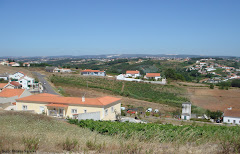 Quando:
Quando:18. 9.—7. 12. 2014
Onde:
Ljubljana, Slovenia
Since its founding in 1964, the Biennial of Design (BIO) in Ljubljana has surveyed the state of contemporary design from the heart of Central Europe. Witnessing the many shifts and changes the discipline has undergone in the last 50 years, BIO has seen design transition from its birth at the crossroads of industrialization and modernism towards a discipline that permeates all layers of everyday life.
Ultimately, the many steps in this transition have illustrated the fragility of the discipline’s initial framework. The contemporary world is no longer a place of and for mass production and distribution; instead, design has migrated through the multi-layered networks of today towards local, specific, customizable scenarios where the designer is no longer an all-powerful creator, but an element in a network of collaboration and influence. Similarly, in a world over-saturated with products and projects, the fundamental goal of design ceases to become the production of yet another chair.
Today, design has become a form of enquiry, of power, and of agency. With it, the role of any event that seeks to represent and disseminate design has also fundamentally changed. On its 50th anniversary, BIO embraces this opportunity to build upon its own tradition and history, advancing into an experimental, collaborative territory where design is employed and implemented as a tool to question and transform ideas about industrial production, public and private space, and pre-established systems and networks.
Engaging designers and multidisciplinary agents from Slovenia and abroad, BIO 50 will create twelve teams to work on a wide and comprehensive range of topics that resonate with local and global demands. Team mentors will elaborate a brief for each category, guiding participants in the creation of one or more projects to be developed and implemented during the Biennial.
BIO 50 will be a complex, transformative effort that seeks to strengthen local and international design networks, search for alternatives to implemented systems where design can play a role, and create bases for resilient structures that can develop through time, beyond the duration of the Biennial.
Jan Boelen/Z33
Thema 4: Walking the City
Walking in an urban environment is an essential component of contemporary life. From the mundane – the stroll of the flâneur or a functional shopping walk – to the ritual – a religious procession or a political protest march – the pedestrian has rights and agency, and yet seems to neglect or have forgotten them. Returning to a pedestrian scale, this team will devise new ways of urban action and reclaim public space as a privileged platform for walking.
Ver mais:
http://bio.si/en/













Sem comentários:
Enviar um comentário